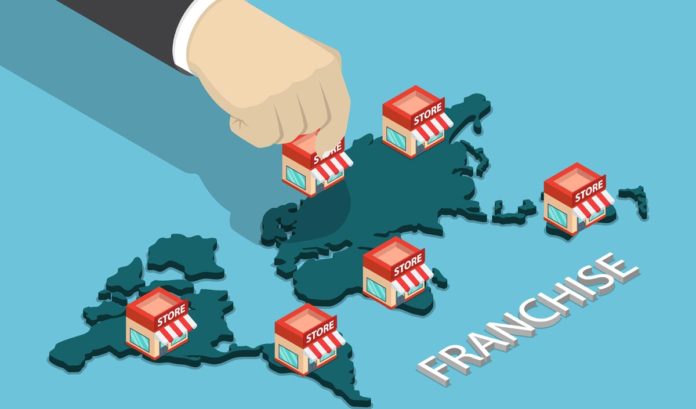A recent study found that 62% of Americans dream of starting their own business, but only 14% of them think that this goal is something they could achieve.1
Why the disconnect? Respondents point to a fear of failure, a lack of experience, and financial concerns as the top reasons that they shy away from entrepreneurship.
The rewards, however, can be far greater than the risk. Building wealth, creating a legacy, having financial independence, and pursuing one’s passions are all compelling reasons to take the plunge. This is especially relevant once you’ve become established in your career and begin to wonder if there’s something else out there you could be doing that would bring you more satisfaction.
One way to start a business without having to do it all from scratch is to buy a franchise. For some, it can provide a balance of entrepreneurship while still providing an already-established successful business model. You get to be your own boss, and still have the guidance of proven systems to keep your day-to-day running smoothly.
Still, franchises aren’t for everyone, and they don’t come without a list of drawbacks. Further, if you’ve ever read Robert Kiyosaki’s bestseller, “Rich Dad, Poor Dad,” you might recall the story he told about his “poor” dad who became bankrupt two years after buying an ice cream franchise.
There’s a lot of content about franchises online, but few sources are willing to provide a balanced and in-depth view of the pros and cons. Until now.
Pros of Owning a Franchise
Access to a Proven System for Success
Every franchise owner gets an operations manual that specifies daily procedures and operational guidelines. You don’t have to worry about policies, pricing, employee uniforms, sourcing software, finding vendors, or anything else that is likely to be outside of your core competencies.
One of the biggest advantages of these systems is that they’ve been refined over time by experienced business owners. They’ve weathered the storm and learned from previous mistakes, potentially saving you from years of trial and error and thousands of dollars in expenses.
Training and Support
It’s not uncommon for business owners to feel isolated and alone, especially if something goes wrong. With a franchise system, you can always reach out if you need help with an issue or you’re having a problem you need help resolving.
Brand Name Recognition
Customers trust and will pay a premium for established brands. If you’re an unknown entity, it can be hard to build a reputation and develop a loyal customer base. Franchises, on the other hand, have name recognition and promise a consistent experience. This improves your chances of getting customers in the door from day one.
Economies of Scale and Purchasing Power
Because you are part of a buying conglomerate purchasing in large volumes, you get access to the lowest prices.
For example, as a single-location restaurant, you might have some decent deals worked out with your distributor. But, if you own a restaurant that’s part of a franchise with hundreds of franchisees, you get access to the corporation’s entire distribution network and their negotiated prices. The deals you’ll get are often superior than what you would get as an independent business owner.
These deals also extend beyond your business’s supplies, equipment, and consumables. You can also get favorable terms from insurance providers, leasing agents, media companies, and more.
Cons of Owning a Franchise
Startup Costs and Royalty Fees
Depending on the type of franchise you buy, the acquisition cost could range from a few thousand dollars to several hundred thousand dollars. The more established a brand is, the more expensive the name is going to be to acquire.
You also have to pay royalties each month. Most people are familiar with the idea that they have to pay a percentage of their income back to the corporate office. What they sometimes aren’t aware of is that this percentage is based on gross revenue, not net income. So, if your royalty fees are 6% and your business had $1 million in sales, then you are on the hook for $60,000. If your profit was only $100,000 for the year, then that can be a hard check to write.
You also have to agree to dedicate budget to advertising and other expenses as dictated in your franchise agreement.
Lack of Flexibility and Creativity
Depending on your agreement, you might not be able to pick your location. The franchisor may select and buy the real estate, build the property, and lease it back to you. If you want to run a business near your home, you could be out of luck if the franchisor picks a location that forces you to commute hours a day.
You should also be aware that you cannot make any changes to products, recipes, and services. For example, if you own a Jiffy Lube franchise, you can’t decide to sell cars out of the parking lot. If you own a Jamba Juice franchise, you can’t begin adding new recipes that you think your customers will like. While this does help you stay consistent with the branding and the franchise’s core competencies, it can feel like you’re stuck.
Restrictive Contracts
Again, this varies, but it’s not unusual for contracts to have minimum terms of five years, or longer. This means that if you decide six months after getting started that owning a franchise isn’t right for you, you can’t walk away without severe penalties.
Even if your franchise business ultimately fails, you can still be stuck paying fixed royalty fees while also losing your initial investment.
You Don’t Own the Business
This point is key because it’s easy to overlook in the excitement of acquiring a franchise. When you buy this type of company, you only have a license from the franchisor to open the business and sell their products and services.
Who Franchises are Best for and Who Should Steer Clear
Buying a franchise can be a fantastic opportunity, but it depends on your goals, lifestyle, and preferences. Military veterans who like having systems and procedures tend to do well in franchises. This model also works well for people who appreciate having a turnkey business that has ready-made profit potential.
If you are someone who wants ultimate control of your location, operations, and marketing strategy, then you’ll likely be better off starting your own business. This strategy is also best for those who would rather skip paying franchise startup fees and royalties and use them toward their own business instead.
Last Word
One of the biggest draws to the franchise model is their perceived success rate. A study from the IFA (International Franchise Association) reported that 92% of franchise businesses were still open after five years, and they claimed an 80% failure rate among small businesses.
However, recently, that study has been discredited. It should be a red flag when an organization promoting their product shares only favorable information. An independent study found that small business and franchise businesses actually had similar success rates, and independent enterprises had slightly higher profitability.2
This data isn’t meant to convince would-be business owners one way or the other. Instead, the goal is to provide a balanced view that shows both the benefits and potential pitfalls of the franchise industry.
If you do go the franchise route, you’re in good company. One in every 12 businesses in the United States is a franchise. There are more than 733,000 franchise locations as of June 2019, employing 14 million workers.3
A final tip for you to consider is that not all franchises are created equal. While this concept might seem like common sense, it can be eye-opening to speak to other franchise owners (both successful and unsuccessful) about their experience before you make a decision.








